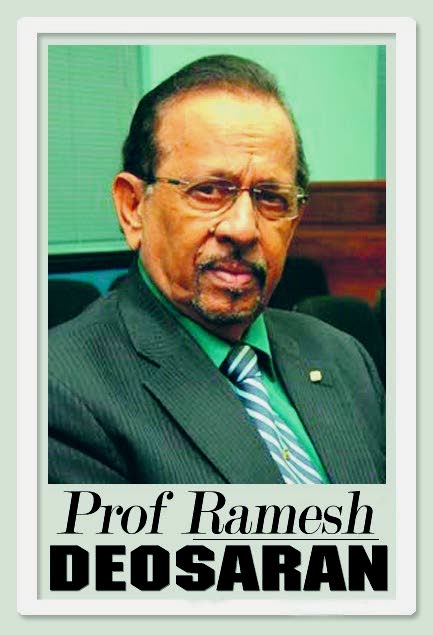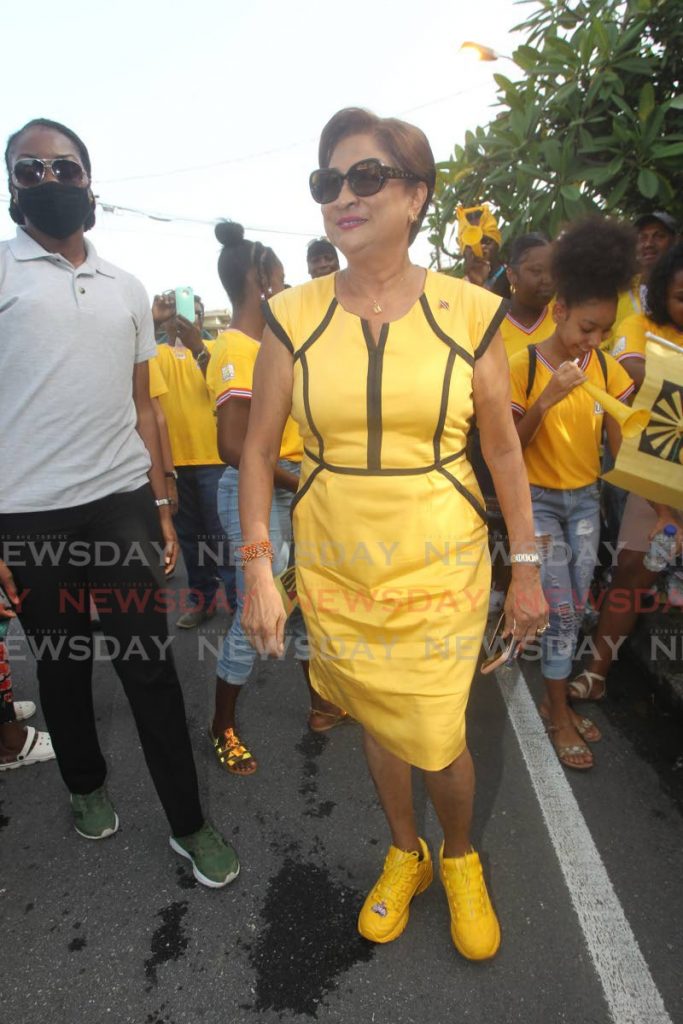Lobbying, party and race

Last month this column asked “will things get better” after the elections? With over one hundred candidates fighting for forty-one parliamentary seats, the population will witness a severe 28-day contest. But really, what are they fighting for? Neither party nor candidate has yet produced a manifesto. Not that manifestos really matter – given the country’s experience.

The manifesto seems ethnicity in disguise. Given that the race will be very quarrelsome and tight, international observers may be useful. Both the PM, Dr Rowley, and UNC leader Kamla Persad-Bissessar should agree on the Caricom team.
Now about party politics. Notwithstanding recent local government results, Persad-Bissessar now faces a high-stakes reputation test. Predators are still around. Then there is post-selection lobbying by some no doubt embarrassing both party and her. Look, whether PNM or UNC, if a politician completes a five-year or moreso a ten-year term, that’s it, especially if he or she has a profession. Parliament is not for permanent residence. S
ome room must be made for others at the leadership’s discretion. Win or lose, parties must evolve. Maybe the time has come for political parties to have a contract with a five-year or less term, subject to party renewal. Further, in the adversarial parliamentary system, it is subversive for MPs to openly compete with their leader. Remember, the other party is gleefully watching. Conscience voting or no confidence by majority of MPs in leader is a different thing.
Political character gets exposed when a politician is under stress, for example, not being selected as a candidate. The PNM’s Robert Le Hunte displayed gentlemanly conduct in not being selected. Even in the fallout with his leader he refrained from embarrassing his party. Edmund Dillon too. UNC’s Fazal Karim was most gracious not only in welcoming his successor, Vandana Mohit to Chaguanas East, but thanked his leader for giving him the opportunity to serve.

Christine Newallo-Hosein was equally magnanimous with Cumuto-Manzanilla. Feisty Ramona Ramdial, thanking her leader, promised to return like “The Terminator.” In party politics, one must know where democracy ends and where leadership begins. Insiders noted that Bhoe Tewarie apparently competed publicly with his leader’s proposals with his own repeated “recovery proposals.” Persad-Bissessar should also know which UNC members will be targeted during the campaign.
In adversarial politics, loyalty is a precious commodity. Quite possibly, it was embarrassing to Persad-Bissessar when the Opposition abstained from supporting Gary Griffith’s nomination while Tewarie, Fuad Khan and Ganga Singh, though eventually supporting, publicly expressed disagreement with the UNC position. Apart from ability, loyalty no doubt played an important part in selecting Anita Haynes, Rodney Charles, David Lee, Dave Tancoo and Barry Padarath. Candidates’ character and loyalty mean a lot to a party leader in battle. Radio talk shows and Facebook warn that race still means a lot, even crossing intellectual boundaries.
Incumbent PM Dr Rowley and the PNM, too, must explain obstacles that prevented them from doing better and how 2020-2025 will be better with new faces. I say all this to help emphasise a point that seems sadly missing in the political landscape. That is, many public officials and elected politicians seem reluctant to account to the taxpaying population. And the bluster, chest-thumping and even anger they display when called to account are offensive and out of place in this democratic society. It obstructs solutions.
Beyond global, nice-sounding phrases, there are lots of specific, ground-level things that need fixing in 2020-25. It will require hard work, patience, fresh thinking, civic alliances and no kind of “theifin” whatsoever. Last month, Dr Rowley said: “The solution now lies in rebuilding TT’s productive sector, creating employment, boosting productively, trade and the services sector, improving revenue collection and reducing unsustainable expenditure.” He declared, “the country cannot afford a welfare state.” Meanwhile, last week Persad-Bissessar, pointing out the “many failed promises” of the PNM government, conveyed the widespread opinion that “crime is out of control, the murder rate is escalating without solutions in sight.” So for 2020-25, will crime and murders be significantly reduced? Will the failures from the education system be reduced? Will traffic frustrations be reduced? Will praedial larceny be reduced, etc? Will things get better?

Comments
"Lobbying, party and race"